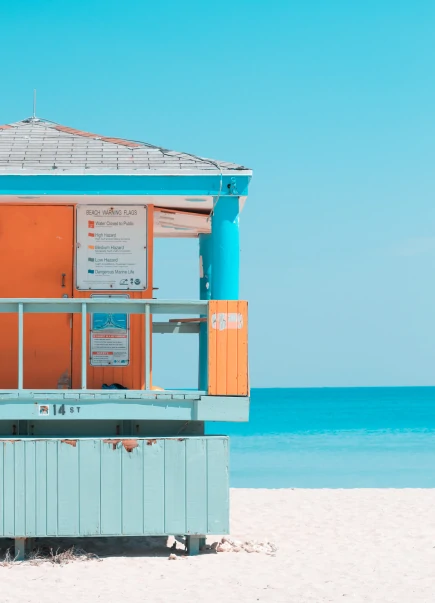

At Vita Recovery, we understand that addiction is a complex and multi-faceted disorder. That’s why our treatment program combines evidence-based therapies with holistic approaches to help clients achieve lasting recovery.
Our experienced team of professionals offers an array of therapeutic modalities to meet the individual needs of each client. Our therapy options include Cognitive Behavioral Therapy (CBT), Experiential Therapy, Group Therapy, Family Therapy, and Relapse Prevention.
Each therapy session is tailored to the unique needs and preferences of the client in order to ensure maximum benefit from their time at Vita Recovery.
Cognitive Behavioral Therapy (CBT) is a type of psychotherapy that seeks to help individuals identify and address maladaptive thoughts, feelings, and behaviors. During CBT sessions, clients are taught skills to modify underlying beliefs and values that have contributed to their addictive behavior. CBT focuses on building self-esteem, developing healthy coping strategies, identifying triggers for substance use and relapse prevention techniques.
At Vita Recovery, we provide evidence-based cognitive behavioral therapy in both individual and group sessions with trained professionals who specialize in addiction recovery. Our therapists focus on providing clients with the necessary tools to recognize potential triggers, create positive outlets for stress relief, and discover healthier ways of coping with life’s challenges. With the skills they acquire through CBT sessions at Vita Recovery our clients are better able to maintain long-term sobriety after completing treatment.


Experiential therapy is a type of therapy that focuses on helping clients process emotions, gain insight into their behavior, and find new ways to cope with life’s challenges. Experiential therapy can include activities such as art therapy, music therapy, yoga, and equine-assisted psychotherapy.
At Vita Recovery, our experienced team of professionals employs experiential therapies to help clients identify underlying issues related to their addiction and explore those issues in a safe and supportive environment. Through experiential activities like art therapy and animal-assisted psychotherapy, clients learn how to express themselves in healthy ways while processing their personal struggles. This type of therapeutic activity allows clients to work through difficult emotions without judgment or fear of being judged.
By giving clients tools to express themselves creatively and safely, experiential therapies at Vita Recovery can help them connect with their inner strength and build self-esteem while fostering positive relationships with others in recovery. Clients also develop problem-solving skills that they can use after they leave treatment to maintain long-term sobriety.
Family Therapy is an invaluable tool for recovery and long-term sobriety. At Vita Recovery, we recognize the importance of family support in addiction recovery and provide Family Therapy sessions to help clients strengthen relationships with their loved ones. Our experienced team of professionals facilitates open dialogue between clients, their family members, and other significant individuals in their lives to help them better understand one another’s perspectives and work towards a shared goal of continued sobriety.
Family Therapy provides clients with the opportunity to rebuild trust and respect with their families while addressing underlying issues that may have caused or been caused by addiction. During these sessions, clients can process any difficult emotions related to past experiences as well as explore how substance use has impacted their relationships with family members and other important people in their life. By addressing any unresolved issues from the past, clients are better able to move forward in their lives without the burden of these issues weighing them down.
During Family Therapy sessions at Vita Recovery, clients can also gain insight into healthier ways of communicating within their families as well as learn how to set boundaries when necessary. This type of therapy helps build empathy for one another by creating a safe space for honest communication which allows for constructive dialogue about feelings, thoughts, and behaviors related to substance use disorder that may otherwise be avoided due to fear or judgment.
By providing tools that allow families to effectively manage stressors within the household, Family Therapy at Vita Recovery gives clients the skills they need to maintain healthy relationships after treatment has been completed as well as stay on track during recovery by relying on loved ones for support when needed.


Group Therapy is a powerful tool for recovery, as it allows clients to gain insight and support from others who understand the struggles of addiction. At Vita Recovery, we believe in the power of Group Therapy to help clients form meaningful connections with their peers in recovery. Our experienced team of professionals creates an environment that encourages open and honest communication about topics related to addiction and recovery.
Group Therapy sessions at Vita Recovery provide an opportunity for clients to establish trust and understanding between one another while developing healthy coping skills. The sharing of experiences helps foster empathy and provides an outlet for processing emotions without fear or judgment. Clients are able to learn from each other’s experiences while providing emotional support to their peers, helping them develop healthier relationships with themselves and other people.
Our Group Therapy sessions also help individuals identify triggers for substance use, provide relapse prevention techniques, build self-esteem, and develop positive coping strategies for managing stress and anxiety. Through Group Therapy, our clients gain the necessary skills needed to maintain long-term sobriety after treatment is completed.

Relapse Prevention Strategies are an essential part of the recovery process at Vita Recovery. Our experienced team of professionals provides clients with the necessary skills and techniques needed to maintain long-term sobriety. Through a combination of cognitive-behavioral therapy, experiential therapies, group therapy, family therapy, and self-care practices, our clients develop the ability to identify triggers for substance use and build positive coping skills for managing stress and anxiety.
At Vita Recovery, we believe that relapse prevention is much more than simply identifying potential triggers; it requires clients to have a thorough knowledge of themselves, their behaviors, and any underlying issues that may be influencing them. Our team works together with clients to help them better understand themselves and their motivations so they can make informed decisions about how to deal with stressful situations in the future.
Relapse prevention strategies vary from client to client depending on individual needs but generally involve a combination of lifestyle changes such as developing a healthy sleeping schedule or engaging in regular physical activity as well as incorporating mindfulness practices into daily routines. Our team also guides how to build a strong support system which includes leaning on family members or friends for emotional support when needed. Additionally, we emphasize the importance of seeking professional help when difficulties arise to prevent further harm or relapse from occurring.
By providing clients with reliable relapse prevention strategies they can incorporate into their everyday lives, Vita Recovery helps equip individuals with the knowledge and resources needed for success during recovery and beyond.

